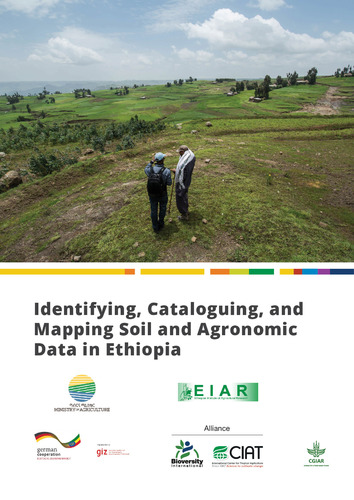Identifying, cataloguing, and mapping soil and agronomic data in Ethiopia.
Agriculture is the basis of livelihood and economic growth in developing regions. However, this sector has “so many problems” and deserves the best solution! The Government of Ethiopia and its various sectors, supported by the international research centers and development organizations, are demonstrating their eagerness to embrace new developments and technological advances. Efforts are underway to “modernize” the agricultural sector and partner organizations are working to assist in building capacity in data collection, management, access, and analytics. In this regard, GIZ is supporting an effort by the International Center for Tropical Agriculture (CIAT) (now part of the Alliance of Bioversity International and CIAT) and other partners to bring soil and agronomic data together, conduct smart analysis in order to support informed decision-making. As part of this exercise, the Coalition of the Willing (CoW), individuals and institutions that are willing to share data and facilitate data access, was established in 2018. To facilitate the process, the CoW created a taskforce composed of senior experts in the fields of soil and agronomy. Among its various ventures, key intervention of the taskforce, which become a basis for other forthcoming activities, was the effort to identify, catalogue, and map soil and agronomic data in the country. Mapping the "data ecosystem” (identifying where the major soil and agronomic data are located and characterizing them in terms of pre-defined attributes) can form important basis to bring those data and run innovative analytics to generate information that can facilitate informed decision-making. This report highlights the efforts made to identify, catalogue, and map soil and agronomic data as well as corresponding metadata from relevant public, international, federal, and regional research and development institutions in Ethiopia. We hope that the report can facilitate data access and sharing thus saving duplication of efforts to collect redundant data that could be used for other innovative things.

